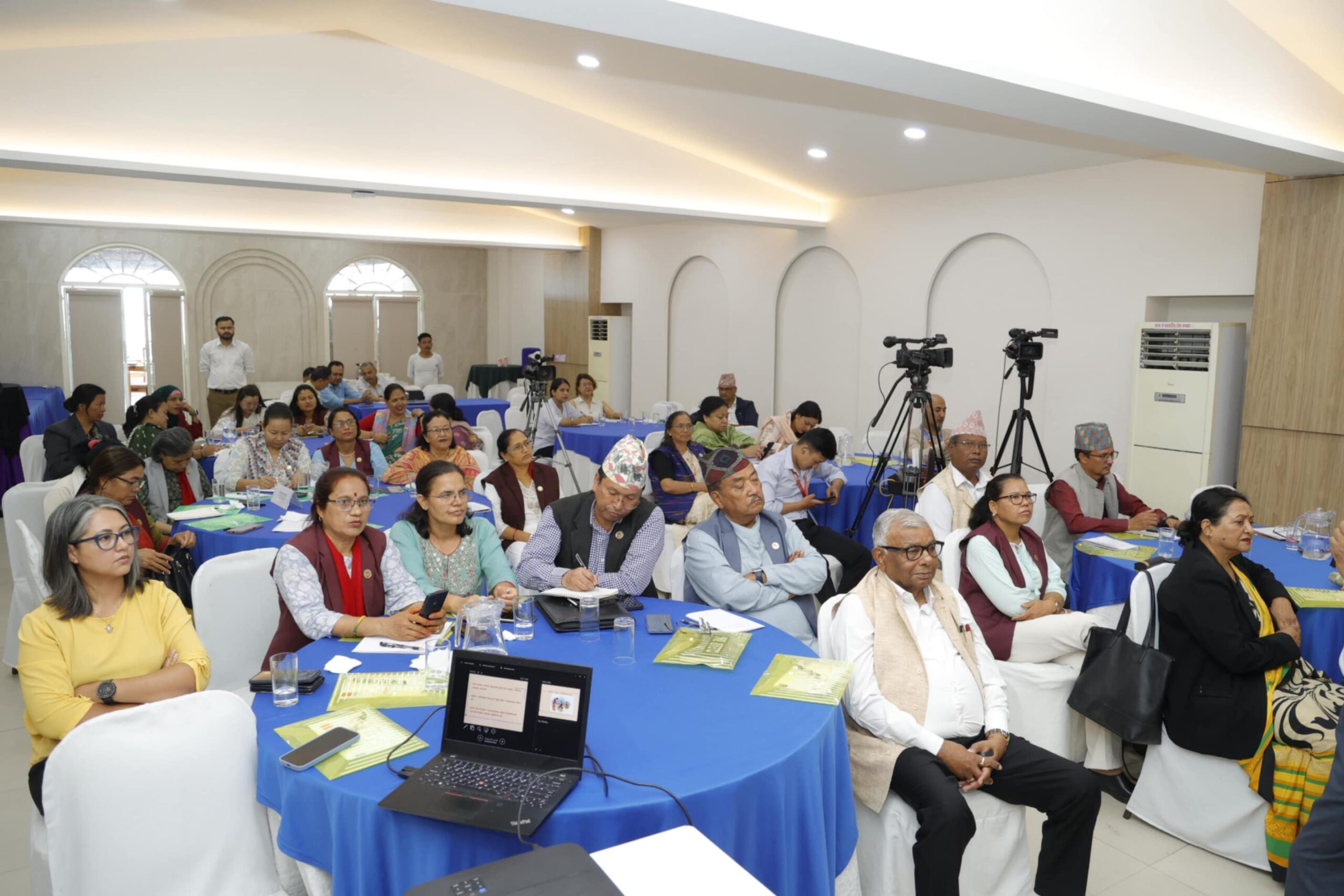
Kathmandu – The Ministry of Women, Children, and Senior Citizens has formed a committee to implement the recommendations provided to Nepal by the UN Committee on the Elimination of Discrimination Against Women (CEDAW), Minister Nawal Kishor Sah Sudi announced.
Minister Sudi, speaking at a discussion program organized by the Forum for Women, Law, and Development (FWLD) on Thursday with members of the House of Representatives regarding the concluding observations of the CEDAW Committee, said:
“A committee has already been formed under the coordination of Laxmi Kumari Basnet, Secretary at the Ministry of Women, Children, and Senior Citizens, which includes CEDAW Committee member Bandana Rana, advocate Sabin Shrestha, and other members. The government is committed to implementing the recommendations of the CEDAW Committee within four years.”
The minister also informed that the 80 recommendations issued by the CEDAW Committee are being translated into Nepali, and will further be adapted into local languages so that women in rural areas can also understand and access the information. He added that the government is making efforts to move forward in coordination with international NGOs.
While noting that it is difficult to define Nepal’s exact status in CEDAW implementation, Minister Sudi claimed Nepal has made notable progress toward achieving gender equality.
Kiran Kumar Sah, Chairperson of the Women and Social Committee of Parliament, remarked that while laws have been formulated to promote gender equality, they are not yet sufficient. He noted that two significant bills—on human trafficking and children’s rights—have been submitted to the House. However, he lamented that often only one or two members attend committee sessions when it comes time to pass such legislation.
FWLD Executive Director Advocate Sabin Shrestha briefed lawmakers about the role of the CEDAW Committee and the responsibilities that arise after a country ratifies an international convention. Although Nepal has made some efforts, much remains to be done to eliminate all forms of discrimination against women, he said.
Advocate Shrestha pointed out several legal gaps in Nepal’s system, including the lack of a clear definition of public discrimination in the Penal Code, the need for a law on the right to special opportunity, the necessity of legal aid legislation, and the importance of translating laws into local languages. He also emphasized the need for training for professionals working in the legal sector.
Lawmakers expressed concern that no proposal of urgent public importance concerning women’s rights has yet been registered in Parliament. They also highlighted the absence of gender-responsive budgeting and stressed the need to increase women’s political participation and formulate an umbrella law addressing violence against women.
They agreed that such discussions provide crucial awareness about discrimination against women. However, several lawmakers, including Juveda Khatun, criticized the fact that a Women’s Coordination Committee has not been formed in Parliament, even after two and a half years—limiting efforts to raise a unified voice against gender-based violence.
Representing the Embassy of Finland, Kamana Gurung emphasized the need for national laws aligned with international conventions and called for inclusive representation of women’s voices. She reaffirmed Finland’s readiness to support Nepal in ending all forms of discrimination against women. She also noted that future laws should consider the needs of younger generations.
The discussion was chaired by FWLD President Geeta Aryal. Advocate Sagar Pathak explained the objectives of the event. He noted that during CEDAW’s 90th session, FWLD submitted a joint civil society report representing 106 NGOs from Nepal. Pathak added that it is unfortunate that even after 35 years of ratifying CEDAW, Nepal is still stuck in implementation discussions.